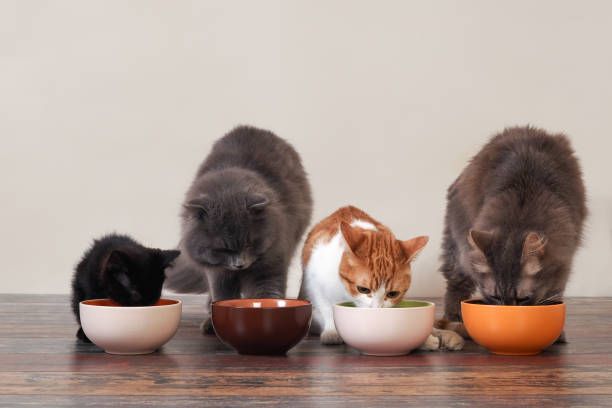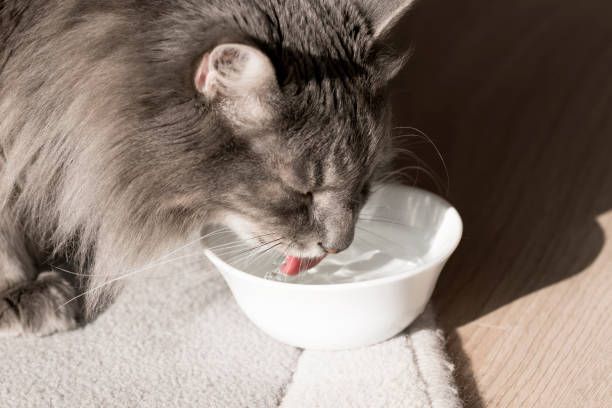A cat's health and happiness depend on their diet and living environment. Improper feeding not only leads to nutritional deficiencies or excess but can also cause a series of health issues. This article provides a detailed feeding guide to help you avoid common feeding mistakes and ensure your cat stays healthy and happy.
1. Avoid Overfeeding

Overfeeding is one of the main causes of obesity in cats, which can lead to diabetes, joint problems, and a shortened lifespan. It is important to follow the feeding guidelines provided by veterinarians or cat food manufacturers and regularly monitor your cat's weight. If you notice your cat gaining weight too quickly, adjust the food quantity and increase their activity level.
2. Prevent Underfeeding
Underfeeding can also lead to malnutrition, affecting your cat's health. It is crucial to provide enough food to meet your cat's nutritional needs based on their age, weight, activity level, and health status. If unsure about how much to feed, consult a veterinarian for professional advice.
3. Avoid Feeding Inappropriate Food
Cats have specific nutritional needs that differ from other animals, especially dogs. Feeding your cat dog food or human food can result in nutritional deficiencies and health problems. Ensure your cat's diet consists of balanced food specifically formulated for felines, containing essential minerals, amino acids, and fats. If you choose to prepare homemade cat food, you must add the necessary supplements and vitamins.
4. Ensure Adequate Hydration

Cats need access to fresh, clean water at all times to stay healthy. Dehydration can lead to urinary tract problems and other health issues. This is especially important when cats are fed dry food. Place the water bowl away from the food to prevent cats from associating the scent of their “prey” with their water source, which can encourage them to drink more.
5. Control Treats
While treats are a fun way to reward or diversify your cat's diet, overfeeding treats can lead to nutritional imbalance and obesity. Treats should make up only a small portion of your cat's diet and be given in moderation.
6. Proper Placement of Food and Water Bowls
Keep the cat food and litter box in separate areas, as no one wants to smell feces and urine while eating. Use shallow dishes or plates for food, as deep bowls can be uncomfortable for cats. Plastic containers can absorb unpleasant odors; it's best to use stainless steel or food-grade ceramic containers.
7. Provide Wet Food
In addition to dry food, offer your cat wet food. Wet food is healthier for cats and helps maintain their hydration. If your cat doesn't drink enough water, wet food is a good supplement.
8. Maintain Clean Litter Boxes
Ensure you have enough litter boxes—at least one per cat—and clean solid waste daily. If using non-clumping litter, replace it weekly to maintain a clean environment for your cat.
By following these guidelines, you can avoid common feeding mistakes and ensure your cat stays healthy and happy. A proper diet and living environment are crucial for your cat's health, and this guide aims to provide better living conditions for your beloved pet.
Want to immortalize your feline friend in a stunning oil painting? Commission a beautiful portrait that captures your cat's unique personality and charm. Click here to order your custom cat portrait and create a timeless piece of art that you and your family will cherish forever.
